News
COVID-19: 624 out of 695 workers of Tema fish processing company test negative
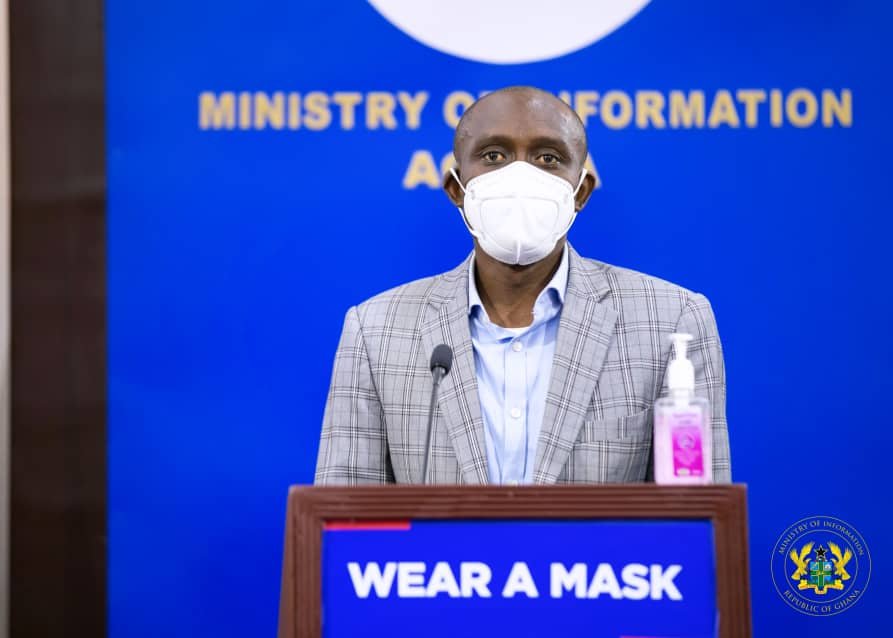
At least 624 out of a total of 695 workers who tested positive for coronavirus (COVID-19) at the Tema-based fish processing company have recovered as the factory prepares to resume operations.
According to the Ghana Health Service (GHS), after all 1,300 employees of the company were tested for the virus, an additional 162 workers were found to have been exposed, resulting in the shutdown of the factory.
It would be recalled that in his last address, President Nana Addo Dankwa Akufo-Addo disclosed that one person had initially infected 533 employees of the fish processing company.
The infections, he indicated, were identified as part of a backlog of nearly 921 cases going back as far as April 26 that was only recently being reported.
Updating the country yesterday following an assessment into the outbreak at the factory, the Head of Disease Surveillance at the Ghana Health Service (GHS), Dr Franklin Asiedu Bekoe said aside non-adherence to social distancing protocols, facilities like a staff bus and clock-in machines had exposed workers to the virus.
“Most of them were asymptomatic and currently we are aggressively identifying contacts of seven people who tested positive because we realise most of the workers live outside Tema and may have infected other people.”
To forestall any occurrence, Dr Bekoe said the GHS had ensured that the factory had in place hand washing facilities; “we have done floor marking to demarcate where people must stand, staff are to wear face mask and placed sanitisers at vantage points.”
“We have also created a holding room at the factory and a temperature check point at the entrance to quickly isolate workers in case of any event and with the level of compliance seen, they are ready to start operations soon,” he said.
In the case of Obuasi in the Ashanti Region, where a trader was said to have infected 17 others at the Obuasi central market, Dr Bekoe indicated that fact-finding visit to the area found, among others, that most individuals refused to wear face masks, “despite how densely populated the area is.”
“Although AngloGold Ashanti has a prominent hospital, we found that they did not have a treatment facility. You also do not see people wearing face masks and there is no holding or quarantine facility,” he observed.
To this end, the Head of Disease Surveillance said the GHS has initiated measures, including a voluntary mass testing programme, for high risk populations to curtail the spread of COVID-19 in the area.
“We are going to carry out enhanced contact-tracing in the very high-risk areas. Obuasi has very densely populated areas like Central Market, Anyinam, Asankore, Wawaso, among others. We are also going to do mass voluntary testing among certain risk groups, including taxi drivers and food vendors as a way of trying to address surveillance and contact management in Obuasi,” he said.
Dr Bekoe announced that in addition to resourcing the Kumasi Centre for Collaborative Research (KCCR) to improve testing, government had secured a 100-bed facility as an isolation centre to help in case management.
Ghana now has 5, 918 confirmed cases of COVID-19, with 1,754 recoveries and 31 deaths.
BY ABIGAIL ANNOH
News
GNAD courts media to promote importance of sign language
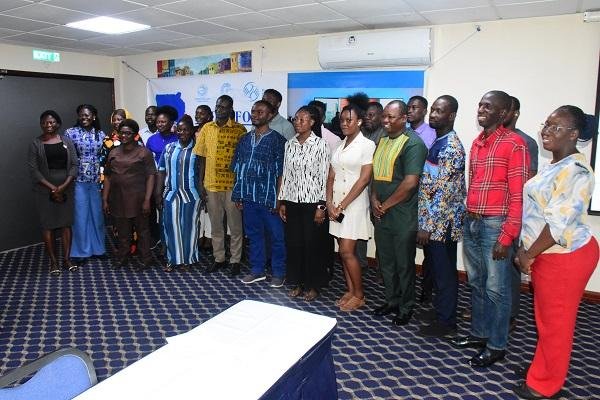
THE Executive Director of the Ghana National Association of the Deaf (GNAD), Mr Juventus Dourinaah, has called on the media to take a lead role in promoting inclusivity and accessibility for the deaf and hard-of-hearing persons in Ghana.
He made the call at a media forum last week on the theme “No Human Rights Without Sign Language Rights.” It brought together journalists, development partners, and members of the Deaf community.
The event formed part of efforts to highlight the importance of sign language as a human right and to encourage media institutions to adopt inclusive communication practices.
Mr Dourinaah emphasised that the media was one of the most powerful tools for shaping public perception, influencing policies, and setting national agendas.
“The media holds strong power to influence understanding and build inclusion.”
For deaf persons, he said, access to information through sign language, captioning, and visual communication is not a privilege but rather a human right.
He added that without accessible communication, deaf people remain excluded from national conversations, education, and opportunities that shape their lives.
He therefore urged both public and private broadcasters to integrate sign language interpretation into all news programmes, public service announcements, and major national events.
Mr Dourinaah also appealed to the National Communications Authority (NCA) and the Ministry of Communications (MoC) to make accessibility a mandatory requirement for all media houses.
At the end of the meeting, media representatives in a communique pledged to promote accessibility by including Ghanaian Sign Language interpretation and subtitles in programming.
They also pledged to ensure fair and non-discriminatory representation of deaf persons while collaborating with GNAD to train media personnel on inclusive communication.
Join our WhatsApp Channel now!
https://whatsapp.com/channel/0029VbBElzjInlqHhl1aTU27

News
29th GJA Media Awards to be held in Kumasi
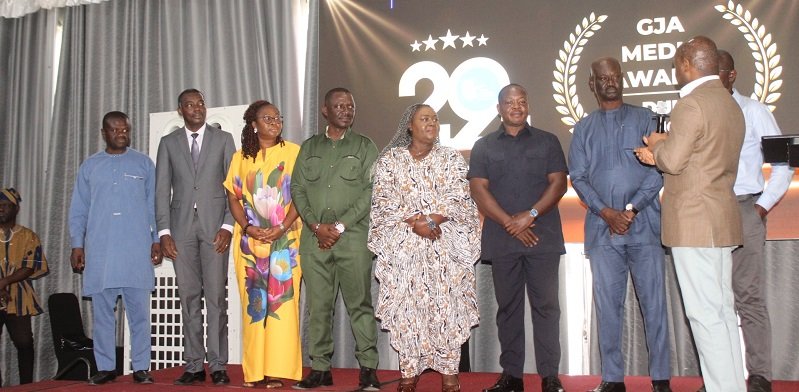
The Ghana Journalists Association (GJA) would host its flagship awards in Kumasi for the first time, with the 29th edition set for November 8 at the Manhyia Palace, under the patronage of the Asantehene, Otumfuo Osei Tutu II.
The event will celebrate excellence in journalism and recognise media professionals and institutions that have demonstrated integrity, innovation, and commitment to the highest standards of the profession.
Launching the Awards in Accra on Thursday, the GJA President, Mr Albert Kwabena Dwumfour, explained that the decision to host the awards in Kumasi was a symbolic gesture of inclusivity, reflecting the Association’s commitment to recognise contributions from all regions of the country.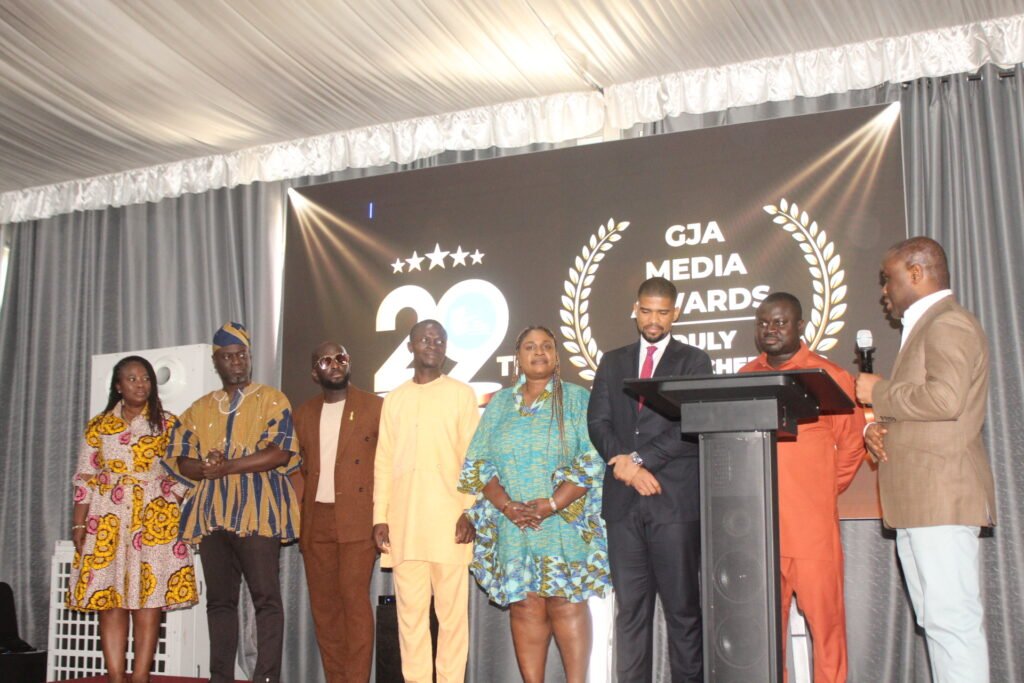
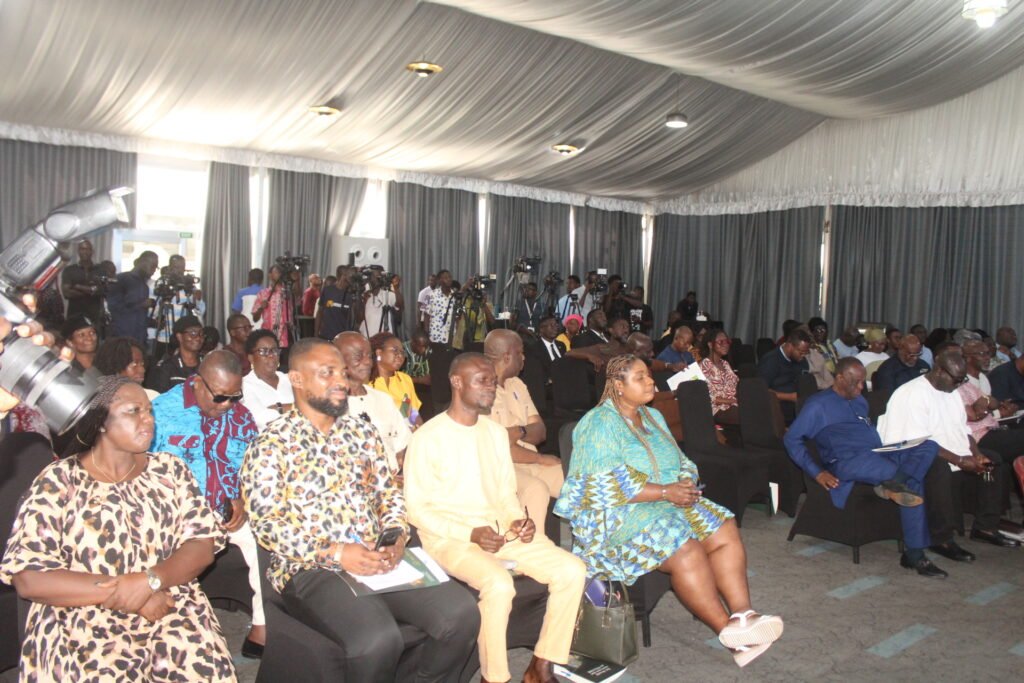
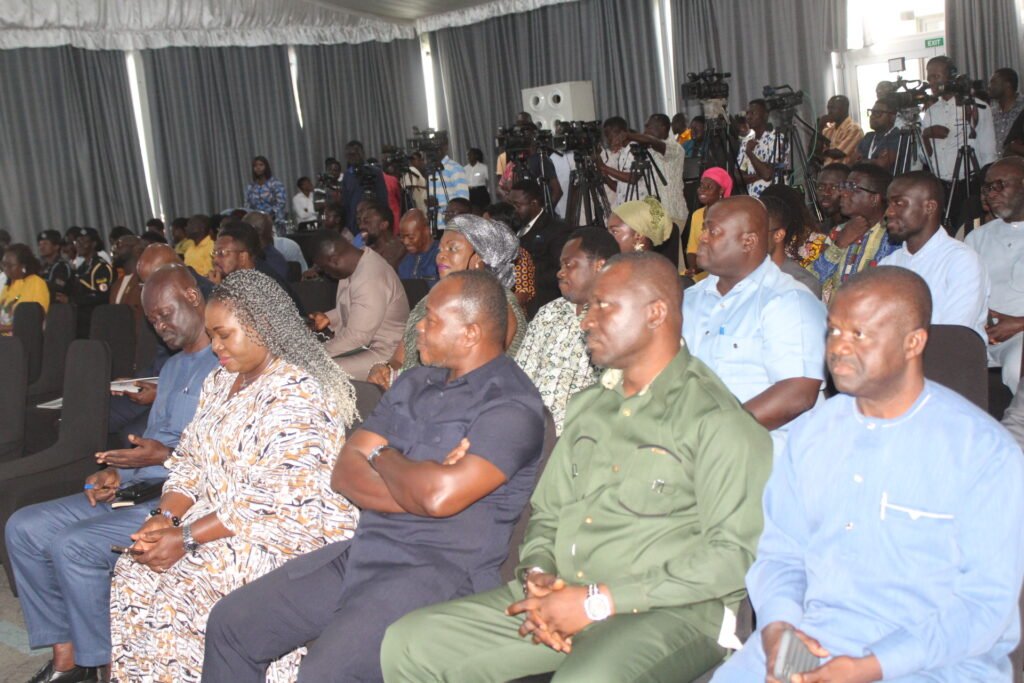
This year’s edition would be held under the theme, “Safeguarding Ghana’s Future: The Role of the Media in Promoting Peace, Security and the Fight Against Galamsey.”
At the launch, two committees — Awards and Planning Committees — were inaugurated.
The nine-member Awards Committee, chaired by Mr Gabriel Bosompem, former Commissioner of the National Media Commission and former Production Manager at TV3 (Media General), is responsible for vetting of entries.
Other members of the committee include Alhaji Salifu Abdul-Rahman, Editor of the Ghanaian Times; Mr Kingsley Obeng-Kyere, P.A.V. Ansah, Ms Nana Yaa Konadu, and Ms Theresa Owusu-Ako.
The rest are Madam Agnes Boye-Doe, Mr David Andoh, Mr Samuel Bio and Mr Jeorge Wilson Kingston.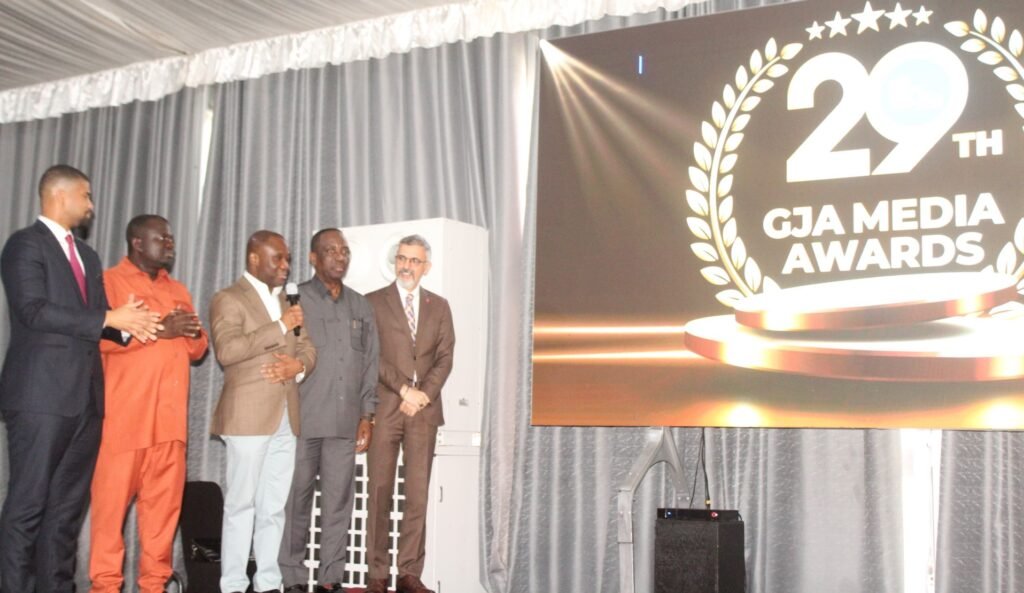
The Planning Committee is co-chaired by Mr Dwumfour and Mr Prince Oheneba Nana Kwaku Duah, and includes Mr Dominic Hlordzi, Mr Emmanuel Safo, Deputy Head of Protocol at the Manhyia Palace; and Mr Kwame Adinkra.
Others are Mr Kojo Soboh, Mr Nathaniel Attoh of Joy News; Ms Rebecca Ekpe, Vice President of the GJA; and former National Treasurer, Mrs Audrey Francesca Dekalu.
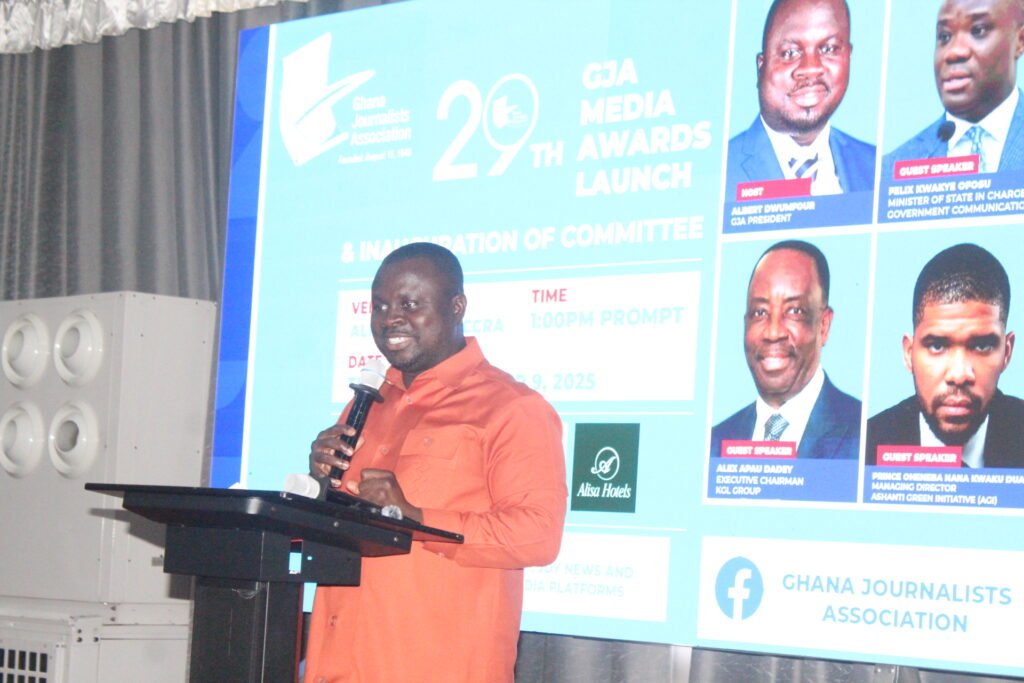
Mr Dwumfour assured that accommodation and transportation would be fully provided for more than 500 journalists to travel to Kumasi for the awards to ensure full participation.
The event will commence with a welcome reception at the Lancaster Hotel on Friday, November 7, followed by a health walk on the morning of Saturday and climax it with the awards ceremony at 4pm at the Manhyia Palace.
The Minister of State in charge of Government Communications, Mr Felix Kwakye Ofosu, in his address, commended the GJA for sustaining the awards for over nearly three decades.
He urged journalists to embrace innovation and adapt to new technologies such as Artificial Intelligence.
He reaffirmed government’s commitment to press freedom, noting that President John Dramani Mahama remains a strong advocate of free speech.
By Linda Abrefi Wadie






